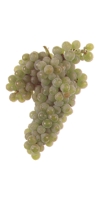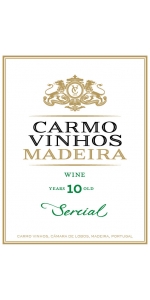Sercial

Sercial is a white grape variety used to create medium-bodied sweet wines, such as Bual & Terrantez and Malvasia. Sercial is mainly grown in the island of Madeira, Portugal and is found in small quantities. After phylloxera ravished the vineyards in Madeira, the grape started to grow more widespread on Portugal’s mainland, where it is called Esgana or Esgana Cao. Sercial ripens late in the year, which contributes to the grape variety’s high acid level. The name Sercial is thought to be related with the Madeira style rather than the grape variety itself, and is a very acidic and light type of Madeira wine that takes the longest to mature. Sercial grapes are harvested late in the year and at least 20 years of aging is required for the vintage Sercial Madeiras wine. The long aging process makes sure that the acidity of the wine is toned down and softened. When the vintage wine is mature, the color has a yellowish tawny tone and is similar to the smell of vintage Riesling wines. Sercial is the driest type of Madeira, and can contain up to 1.5 percent residual sugar. Sercial is also growing in popularity because of its perfume flavors.
Carmo Vinhos Madeira Sercial 10 Yr is the driest style of Madeira, a light bodied wine with a distinctive nutty nose. An excellent apertif. The concentration at this age has produced a very attractive and interesting wine, with a long finish.
- back
Selected Options
Grape Types
Categories
Pricing
Countries
Regions
Grape Types
Wineries
Organic/Free Shipping
Corne Loup Cotes du Rhone Blanc is made from 50% Grenache Blanc, 20% Clairette, 15% Roussanne and 15% Viognier.
The wine has a pale straw color with brilliant reflection. In the nose, it displays great aromatics, mainly citrus fruit. The palate is well balanced, with a lot of finesse and persistence.
Delicious when paired with seafood (seashell and fish). It is also great by itself as an aperitif.
Thorn Clarke Varietal Collection Pinot Gris is made from 100 percent Pinot Gris.
We believe that exceptional wines are created in the vineyard and that we are custodians, rather than creators of quality. Six generations of rich viticultural and geological family history has gone into creating these wines, which truly showcase the best of the Barossa & Eden Valley.
Pale straw in color with quartz green hues at the edge. A classic Pinot Gris style with lifted nashi pear, apples and nougat aromas. The palate is a textural, medium weight style with juicy pome fruits and zesty lime and grapefruit. A refreshing style with a subtle texture and long, fruit driven finish.





